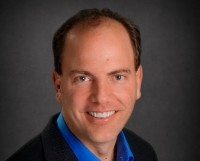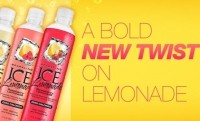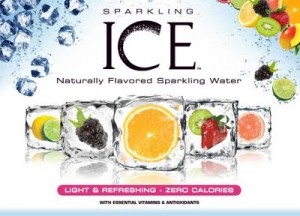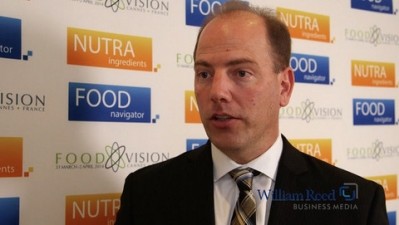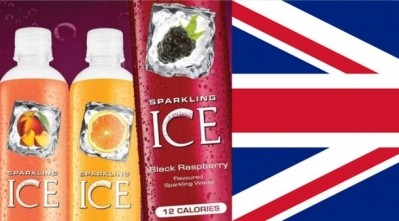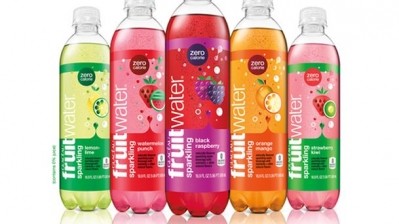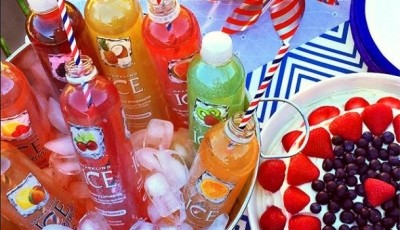Big interview: Kevin Klock, CEO Talking Rain (Sparkling ICE)
Talking Rain CEO: We can turn Sparkling ICE into a $1bn brand by 2018
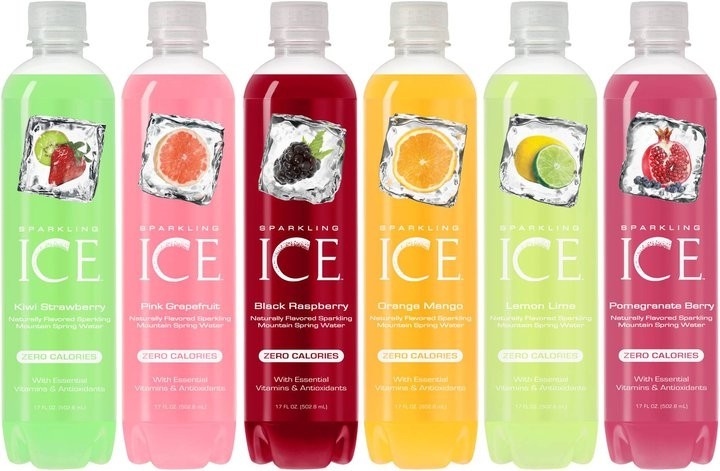
It’s a story that will give hope to struggling food and beverage marketers everywhere. No secret ingredient, no technological breakthrough, no miraculous novel sweetener, no revolutionary new concept or format (it’s fizzy water). But staggering growth.
So what’s Klock’s secret?
The last man standing
Washington-based TalkingRain created Sparkling ICE - a zero calorie beverage sweetened with sucralose and made with natural flavors, vitamins, antioxidants and lightly carbonated spring water - in the early 1990s, says Klock. But it was just one of several products in the portfolio.
Attempts to take two of the firm’s other brands, Twist (flavored water) and Active Water (vitamin-water), to the national market had not been a success, and by spring 2010, the future was looking pretty uncertain as the firm parted company with its president, CEO and VP of sales in the space of six weeks.
Klock, then VP of operations, was effectively “the last man standing”.
Back to basics
So what could the company do to get out of the funk?
Klock’s plan was simple. Focus on Sparkling ICE, which was doing reasonably well on a regional basis, go back to basics on the formula and packaging and try to find out if the firm really did have a winning brand in the portfolio, or whether everyone should just pack up and go home.
“We started by looking at which flavor was doing the best - it was Orange Mango - and looked at the design, the smell when you remove the case, the taste, the level of carbonation, the sweetness, and used that as a starting point", says Klock. "The pack design was changed so it looked much more simple, refreshing and clean.
“We then went through the whole range getting the color to match the fruit, the taste just right - what do you expect when you see peach nectarine? Something that’s like biting into a fresh peach, not like Jolly Ranchers."
Sales just skyrocketed… we had magic in a bottle
He adds: “We wanted consistency on the look, branding, taste components, everything. We then did a small test in 19 Kroger stores in Indiana in September 2010 and it was an instant success. In November, we were in 150 Krogers in the central region, and we knew we were onto something big.
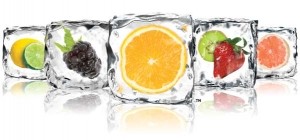
“We then got retailers in the Northwest region to switch from Twist and Active Water to ICE and sales just skyrocketed.
“We asked the owners for $276,000 to support a targeted marketing campaign - which was a lot of money at the time - and they said yes, and we were doing 53 cases a week per store.
“We were showing retailers the IRI data and they couldn’t believe it, but we had magic in a bottle.”
After that, national listings at Kroger rapidly followed, and the rest is history. This year the brand is on course to do $350-400m in retail sales in measured and non-measured channels, and Klock is confident he can get to $1bn by 2018.
We’ve got too complex with some of the offerings in the beverage industry. Sparkling ICE is simple and refreshing
But how does he explain this astonishing transformation? And aren’t carbonated soft drinks supposed to be in terminal decline?
“I think we’ve got too complex with some of the offerings in the beverage industry”, he suggests.
“People abandoned refreshment. Sparkling ICE is simple, refreshing and an alternative to cola and lemon and lime CSDs sweetened with high fructose corn syrup or aspartame. It’s simple and it’s refreshing.”
It also has a very broad customer base. The biggest market is women aged 28-44, but men are drinking it too, and it's almost as popular with every other age group, he says.
As for the competition, Coke’s new Fruitwater has not (at least not yet) caused any sleepless nights at TalkingRain, he claims.
We’re outselling Vitamin Water
Meanwhile, the latest four-week IRI multi-channel data shows that Sparkling ICE outsold Vitamin Water by $3m, he claims, and Sparkling ICE has not - yet - been given the shelf space of some of these mega-competitors, and has still beaten them, he observes.
As for line extensions, the latest new products in the range - four lemonades - have only been on the market three months and are already the #4 player in the lemonade category, he says. “By early next year, I think we’ll be number one.”
In the first couple of years, we didn’t spend anything on advertising
So what’s new for the brand?
Advertising, says Klock. This summer Sparkling ICE launched its first ads as part of a $15m campaign that includes national television commercials plus billboards and other initiatives in 15 markets. It also sponsored the LPGA.
“In the first couple of years, we didn’t spend anything on ads, it sold itself. We also didn’t want to pump it harder as we couldn’t produce it fast enough.”
Indeed, the biggest challenge over the past three years has been managing such rapid growth, he admits. While it’s a problem many rivals would be more than happy to grapple with, it’s not to be underestimated, he says.
“We’ve gone from 65 staff to well over 200, so hiring the right people has been a massive challenge. We’ve also had big supply chain challenges. How do you produce accurate forecasts when you have this level of growth? Which flavors sell best where?
“We had to put in a lot of work getting our distribution systems and our manufacturing in place, but we’ve now got new manufacturing lines and seven warehouses around the country, so we’re much better positioned to meet demand more efficiently.”
Not everything can be completely natural and organic
Finally, what about clean labels?
Sparkling ICE has natural flavors but is sweetened with sucralose, and uses potassium benzoate and several synthetic colors, so does not have a completely ‘clean’ label, acknowledges Klock, although the firm is actively looking for alternatives for all of these ingredients.
Yet this does not appear to have put customers off.
“Of course we’d like to use natural sweeteners and colors and preservatives, and if we could get the same taste, vibrant colors and preserve a cold-filled product without artificial colors, sweeteners and preservatives, we would.
“But not everything can be completely natural and organic.”
